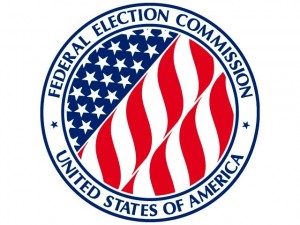About one month after the Federal Election Commission (FEC) said it would delay any vote on approving bitcoin as part of a campaign fundraising method for political campaign, the elections panel has now overwhelmingly voted in favor of permitting political committees to accept bitcoin.
It was reported that the FEC confirmed that political committees could buy and sell bitcoins for investment purposes, but they would be required to convert their digital holdings into United States dollars prior to spending them. The FEC still has not decided if political committees could spend bitcoins on goods and services because the organization was deadlocked.
This is considered to be a major step forward for the peer-to-peer decentralized digital currency because this is the first time that the federal department has acknowledged that cryptocurrencies are a form of “money or anything of value.”
 Commissioners did, however, impose certain conditions: anonymous bitcoin contributions are forbidden, there will be an individual limit of $100 and campaign treasurers are required to scrutinize all bitcoin donations to ensure the legality.
Commissioners did, however, impose certain conditions: anonymous bitcoin contributions are forbidden, there will be an individual limit of $100 and campaign treasurers are required to scrutinize all bitcoin donations to ensure the legality.
“The bitcoin system raises serious concerns with regard to a political committee’s obligation to identify its contributors and determine the legality of contributions it receives,” said FEC Vice Chair Ann Ravel and Commissioner Ellen Weintraub in a statement. “Bitcoins differ from more common contribution methods, such as checks or standard credit cards, because ‘all that is needed to complete a transaction is a bitcoin address, which does not contain any personal identifying information.”
Within the midst of the mid-term elections, it remains to be seen if more political campaigns will adopt bitcoins and if it becomes widespread.
Speaking in an interview with USA Today, Jim Harper, global policy counsel of the industry’s Bitcoin Foundation, said this further legitimizes the digital currency. “It’s another part of the growing body of regulation that establishes bitcoin as a co-equal part of the financial services system.”
Some of the electorate won’t be abiding by the FEC rule. Dan Back, a conservative lawyer who tried to gain the favor of FEC last year, told the news outlet that he will be contributing more than $100 in the virtual currency to House and Senate candidates through the bitcoin political action committee.
Soon after the news was announced, Colorado Democratic Congressman Jared Polis issued a tweet in which he stated that his campaign will begin allowing voters to send their support by donating bitcoins.
“Proud to be 1st member of Congress to accept #bitcoin conations for my campaign under today’s new FEC reg: http://bitcoin.polisforcongress.com.”
Despite the FEC affirmation, numerous federal, state and local candidates started to implement bitcoin fundraising tools, such as Texas Attorney General Greg Abbott, a Republican running for governor, and Texas Republican Congressman Steve Stockman, who is vying for Texas Senator John Cornyn’s seat. In addition, without approval from the FEC, the Libertarian Party had already established bitcoin campaign fundraising initiatives last year.
Although this is considered to be important positive news for bitcoin, it hasn’t really affected its value as it is trading at just under $450 (at the time of this writing).



